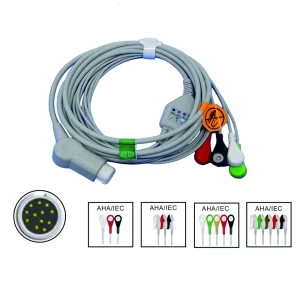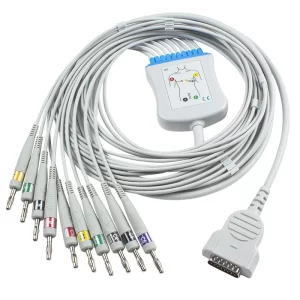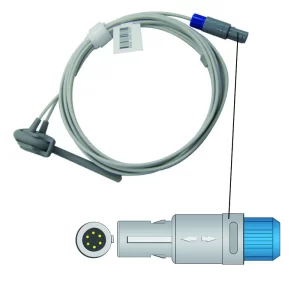Electrocardiogram (ECG) and Electrocardiograph (EKG) are terms often used interchangeably to describe the same medical diagnostic tool. However, there’s an ongoing debate among medical professionals and even the general public about which term is correct and when each should be used. Let’s delve into this debate to understand whether you should use ECG or EKG in different contexts.

Understanding ECG vs. EKG
Differences
Etymology:The primary distinction between ECG and EKG lies in their etymology. “ECG” is derived from the German term “Elektrokardiogramm,” while “EKG” is the abbreviation for the German term “Elektrokardiographie.” Essentially, they refer to the same procedure of recording the electrical activity of the heart.
Usage in Different Regions:Another factor contributing to the confusion is geographical variation. In the United States, “EKG” is predominantly used, whereas “ECG” is more common in European countries and elsewhere around the globe. This regional difference in terminology can sometimes lead to misunderstandings, especially in the medical field.
Technical Aspects
Understanding the technical aspects of ECG and EKG can shed light on their similarities and differences.
Electrode Placement
Both ECG and EKG involve attaching electrodes to specific points on the body to measure the heart’s electrical impulses. The placement of these electrodes follows a standardized protocol to ensure accurate readings. However, slight variations may exist depending on the healthcare provider or equipment used.
Signal Interpretation
The interpretation of ECG and EKG signals is based on the same principles of cardiac physiology. Healthcare professionals analyze the waves, intervals, and segments in the electrocardiogram to diagnose various heart conditions such as arrhythmias, ischemia, and conduction abnormalities.
Equipment Differences
While ECG and EKG refer to the same diagnostic procedure, there may be differences in the equipment used. Some devices labeled as ECG machines, while others are called EKG machines. However, these discrepancies are more semantic than substantive, as both types of equipment serve the same purpose.
Medical Applications
ECG and EKG have a wide range of medical applications, from diagnosing heart diseases to monitoring patients during surgeries or recovery.
Diagnostic Uses:One of the primary purposes of ECG/EKG is to diagnose heart conditions. By analyzing the electrical activity of the heart, healthcare professionals can identify abnormalities such as atrial fibrillation, myocardial infarction, and ventricular hypertrophy.
Monitoring Purposes:In addition to diagnosis, ECG/EKG is used for continuous monitoring of patients in various clinical settings. This continuous monitoring is especially crucial in critical care units, operating rooms, and during cardiac stress tests.
Advantages
Both ECG and EKG offer several advantages that make them indispensable tools in cardiology and healthcare.
Accuracy:ECG/EKG provides accurate and reliable information about the heart’s electrical activity, enabling healthcare providers to make informed decisions regarding patient care and treatment.
Accessibility:With advancements in technology, ECG/EKG machines have become more accessible and user-friendly, allowing for quick and convenient testing in various healthcare settings.
Disadvantages
Despite their numerous benefits, ECG and EKG also have some limitations and drawbacks.
The cost of ECG/EKG machines and associated consumables can be prohibitive, particularly for smaller healthcare facilities or low-income countries with limited resources.
Interpreting ECG/EKG readings requires specialized training and expertise, which may not be readily available in all healthcare settings. Additionally, factors such as patient movement, electrode placement errors, and technical artifacts can complicate the interpretation process.
When to Use ECG
Understanding when to use ECG versus EKG depends on the specific clinical scenario and the preferences of the healthcare provider.
When to Use EKG
Similarly, knowing when to use EKG instead of ECG requires consideration of factors such as regional conventions, equipment availability, and patient preferences.
Conclusion
In conclusion, the debate over whether to use ECG or EKG is largely semantic, as both terms refer to the same essential diagnostic procedure. Whether you choose to use ECG or EKG depends on regional conventions, personal preference, and the specific context in which the term is being used. Ultimately, what matters most is ensuring accurate and reliable cardiac monitoring and diagnosis for patients.
FAQs
What’s the difference between ECG and EKG?
ECG and EKG are two terms used interchangeably to describe the same medical diagnostic tool: the electrocardiogram.
Is one better than the other?
No, there’s no inherent superiority of one term over the other. Both ECG and EKG refer to the same procedure and offer equal diagnostic value.
Are ECG and EKG interchangeable?
Yes, ECG and EKG are interchangeable terms that describe the same medical procedure of recording the heart’s electrical activity.
How do I know which one to use?
The choice between ECG and EKG depends on regional conventions, personal preference, and the specific context in which the term is being used. Both terms are widely understood in medical settings.
Can I use ECG and EKG interchangeably in medical reports?
Yes, you can use ECG and EKG interchangeably in medical reports without any significant difference in meaning or interpretation.





